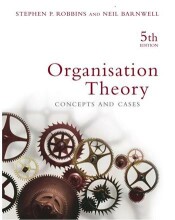Tortious Liability in Business
23 important questions on Tortious Liability in Business
What is a tort?
What is tortious liability?
What is the difference between torts and crimes?
- Higher grades + faster learning
- Never study anything twice
- 100% sure, 100% understanding
What is the difference between torts and contracts?
What is joint/several liability?
in the case of joint, all parties are responsible for the compensation together. In the case of several, all parties may be sued in full
What 3 things need to be proven in order for a negligence claim to be successfully proven?
2. There was a breach of the duty of care
3. The damage suffered by the claimant was caused by the breach
What are the 3 factors that determine whether there is duty of care?
2. Proximity: was the defendants carelessness likely to harm the particular claimant
3. Would it be fair, just and reasonable to impose a duty
What are the 3 requirements for duty of care and psychological injury?
2. Injury as a way of nervous shock must be reasonably foreseeable
3. Bystander claimant must have perceived the event with own "unaided senses", or see the immediate aftermath
What is res ipsa loquitor?
What is the thin skull rule?
What is the novus actus interveniens?
What are the 2 types of nuisance?
2. Public nuisance - when the defendant's act unreasonably interferes with the rights of the community
What are the 2 types of defamation?
2. Libel - more permanent form
What are the requirements for defamation action?
2. Statement referred to the claimant
3. Statement was published
What are the 7 defences to defamation?
2. Honest opinion - when statement of opinion is honestly held on the basis of available facts
3. Publication on a matter of public interest - statement on a matter of public interest which the maker reasonably believed should be made known to the public
4. Absolute privilege - covers something alleged during courtroom proceedings
5. Qualified privilege - if it was an honest opinion and not made with malicious intent
6. Offer to make amends
7. Innocent dissemination - special defence for parties when they are not the author or editor
What are the 2 general remedies in tort?
2. Injunction - court order to prevent the defendant from doing something, or make him do something
In the tort of trespass, what are the 3 main forms of intentional inference with a person?
2. Assault (menacing in the US) - defendant causes claimant to fear he is going to commit a battery
3. False imprisonment - defendant intentionally and directly places a total constraint on the liberty of the claimant
What are the 8 main defenses to intentional torts?
2. Inevitable accident
3. Defense of the person (self-defense)
4. Defense of the property
5. Necessity
6. Lawful arrest
7. Search
8. Seizure
What is the neighbour principle?
What is contributory negligence?
What is volenti non fit injuria?
What are the 6 most common economic torts?
2. Malicious falsehood - false statement that causes damage
3. Passing off - passing of own goods as that of claimant
4. Interference with contract - persuading party to not carry out duty in contract
5. Intimidation
6. Conspiracy
What are the different types of damages?
2. Nominal damages (successful claimant but little damage)
3. Contemptuous (technically successful but little merit)
4. Exemplary/punitive (make example of the defendant)
5. Aggravated (more than compensatory, less than punitive)
The question on the page originate from the summary of the following study material:
- A unique study and practice tool
- Never study anything twice again
- Get the grades you hope for
- 100% sure, 100% understanding





























